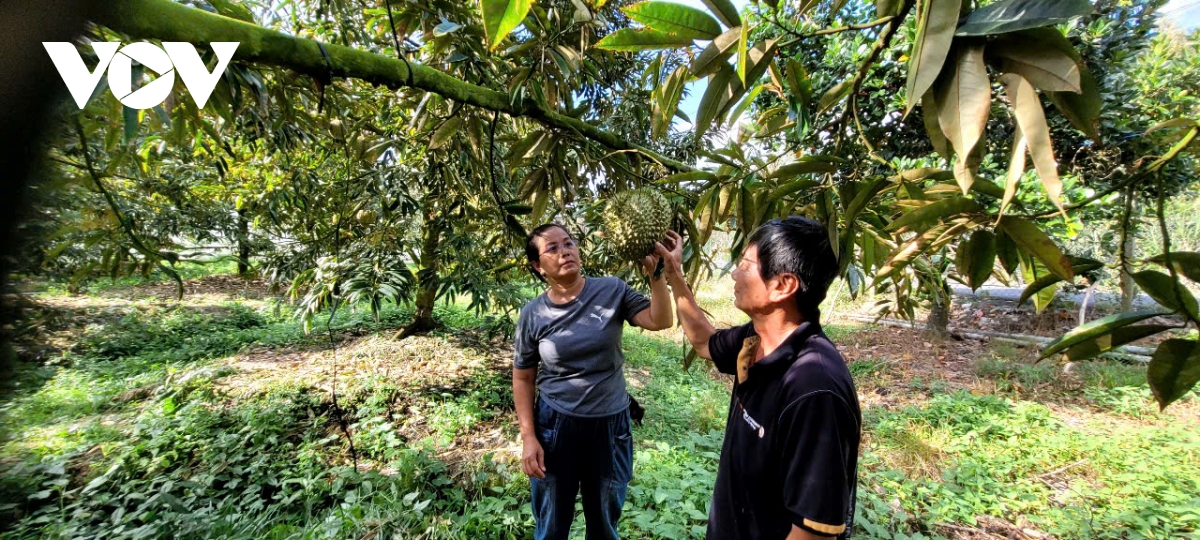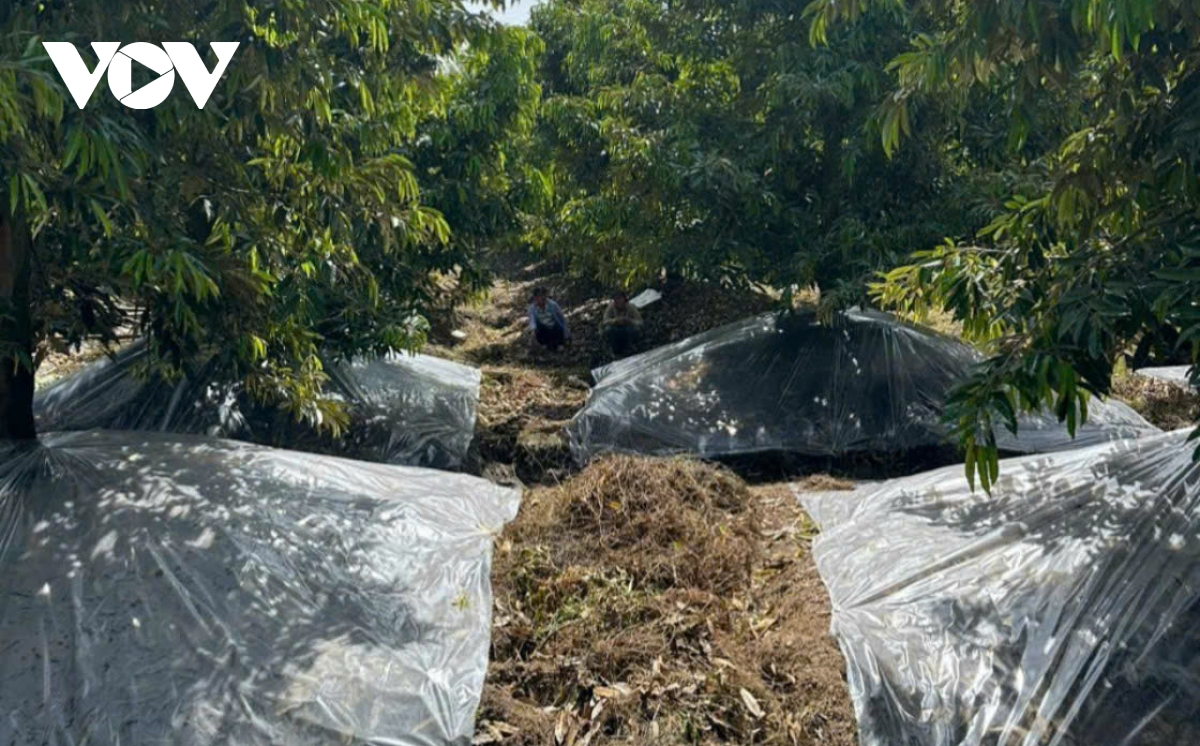According to the Tien Giang Hydro-Meteorological Station, the rainy season in the province ended in late November this year. During this dry season, saltwater intrusion is predicted to be deeper than the annual average but shallower than the 2023-2024 dry season, with some periods similar to last year’s dry season. By the end of December, saltwater with a salinity of 1-2 per mille is expected to intrude more than 20km from the river mouth and will start rising with the tides.
Learning from the experiences of past dry seasons, the authorities and durian farmers in the region have proactively prepared for saltwater intrusion. Since the rainy season, they have implemented plans for inland irrigation, dredged small canals, and reinforced the system of canals and culverts to ensure water regulation and storage functions. In addition to state budget resources, the people also voluntarily contributed funds to cope with saltwater intrusion.

Durian farmers closely monitor and care for their orchards.
Through the propaganda and guidance of specialized agencies, durian farmers have mastered disaster prevention measures and methods, both structural and non-structural. As durian trees are very sensitive to saltwater, with damage occurring at salinities above 0.5 per mille, orchard protection is currently the top priority for farmers.
Mr. Tran Van Nhut, a durian farmer with four hectares of durian trees in Hiep Ninh hamlet, Hiep Duc commune, Cai Lay district, shared, “The people here are very afraid of saltwater intrusion. We have to clean the ponds and canals to store freshwater, and encourage everyone to dredge their garden ponds and canals to store water. We also keep the grass to maintain moisture for the tree roots.”

Farmers in Hoi Xuan commune, Cai Lay district, Tien Giang province, jointly work on irrigation and water flow improvement to cope with drought.
Phu An commune, Cai Lay district, has 800 hectares of specialized durian trees. At this time, about 400 hectares are being treated by farmers for fruiting. The local government and people are urgently preparing for natural disasters.
Mr. Ly Thai Truong, Party Secretary of Phu An commune, Cai Lay district, said, “For the people, we are immediately implementing measures to clean the grass and water hyacinths to improve water flow, and dredge the garden canals deeply to store more freshwater. As for the government, we have requested the district to dredge the internal canals to improve water flow and create depth and ventilation for water storage. At the same time, we encourage people to repair the culverts and covers on both sides of the Phu An river’s east and west banks to promptly close them when saltwater comes in, preventing intrusion and storing freshwater.”
In this off-season, more than 60% of durian orchards in Tien Giang province suffered crop failure, partly due to heat and saltwater intrusion from previous years. Therefore, in addition to the infrastructure and facilities that the government has invested in previously, farmers are also willing to spend their own money to continue implementing water storage projects in their residential areas and family gardens.

Farmers cover durian tree roots to save water and help trees bloom in the off-season.
One advantage in the saltwater intrusion prevention and durian orchard protection in Tien Giang province is the recently completed Nguyen Tan Thanh canal lock (in Song Thuan commune, Chau Thanh district) along with six other locks along the Tien river, forming effective “fortresses” against saltwater intrusion and freshwater storage.
According to Mr. Do Thanh Son, Deputy Director of Tien Giang Water Exploitation One-Member Limited Liability Company, the company will have a reasonable plan to operate the locks and dams according to the provincial People’s Committee’s recently issued plan for drought and saltwater intrusion prevention.
“The Provincial People’s Committee has issued Plan 448 for drought and saltwater intrusion prevention. Based on this plan, the company will develop a schedule for operating the locks to increase freshwater storage. We will start storing water in the Gò Công region at the end of December because storing water earlier will affect rice harvesting. So far, there have been no issues with drought and saltwater intrusion this year, and it is expected that there will be saltwater intrusion around the Tet holiday, but it will not be as severe as last year.”

Nguyen Tan Thanh canal lock – one of the recently completed saltwater intrusion prevention and freshwater storage projects in Tien Giang province.
With these proactive measures, if the saltwater intrusion level is average or similar to the 2023-2024 dry season, freshwater supply for production and daily life will be guaranteed, especially for the durian orchards in Tien Giang province, which will remain safe and lush.
Conserving and Restoring Water Resources in the Mekong Delta: An Urgent Priority
“The Mekong Delta is being reshaped at an alarming rate, with new and adverse features that differ from its natural historical state. As such, the conservation and restoration of water resources to ensure the sustainable development of the Mekong Delta is of utmost urgency.”









































